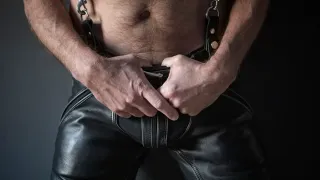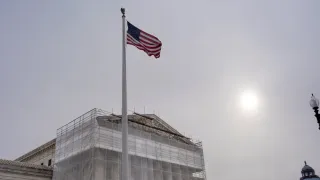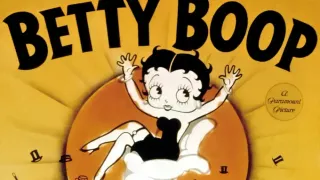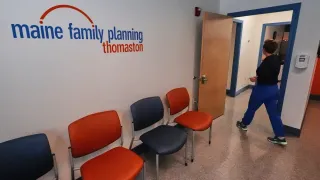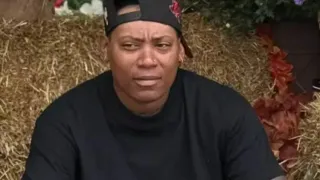April 11, 2023
Mother's Day: New Women's Bar at the Former Esta Noche
Heather Cassell READ TIME: 7 MIN.
Queer women have a new watering hole, Mother Bar in the Mission District, thanks to Malia Spanyol. Queer women and their friends of all ages are responding, Spanyol is thrilled. Mother was packed with queer women and their friends when the Bay Area Reporter went out on the town on a recent Friday night. Mother's doors opened February 2, but patrons were able to enjoy the new bar early during its soft opening the weekend of January 27.
Emilie Sark, 27, was out with four of her straight friends who wanted to support her newly coming out as a bisexual woman. Her friends and she appreciated being in a woman-centric space where they felt safe and were surrounded by other queer people.
"I think it's beautiful watching herself find spaces where she feels comfortable," said Kate Benuska, 27, Sark's best friend. "Being able to find someplace where she feels authentic and herself is really wonderful. I just love seeing that."
Sark appreciated that there was a place where she could meet other women for dating and making friends.
"Coming to a place like Mother to meet other women is so important," said Sark. "There's so many people that I want to flirt with or just hang out with."
Spanyol, who is of Japanese and European heritage, is happy that her desire to open a lesbian bar, like the shuttered Lexington Club, locally called The Lex, in a central location in the Mission near 16th and Valencia, wasn't just her selfish nostalgia for a bygone era in San Francisco.
"I didn't know if anyone even needed this. I needed this, but I thought maybe I'm just a grumpy old dyke," said Spanyol, who gets excited seeing the bar fill up with women.
Vanessa Weng, 40, who self-described her sexuality as "tricky," and her friend Jenny Huang, 45, a queer woman, appreciated that the Bay Area's lesbian bars are now owned by queer women of color.
"It's really wonderful," said Weng.
Huang wasn't as satisfied, noting the under-representation of women, especially women of color, in both the straight and LGBTQ communities. She pointed out that until now queer women had one night a month at a circuit party, compared to gay men who have many places to mingle.
"We need a lot more," not only spaces but representation of women, she said. "We just want to feel more women empowerment. I've had a lot of people come up and just say, 'Thank you.' That feels good."
Inspired by the Past
Spanyol, a 53-year-old tattooed businesswoman, came of age in San Francisco's 'Gay '90s' when queer women ruled Valencia Street and the Mission District with Red Dora's Bearded Lady, Old Wives Tales Bookstore, Osento Women's Bathhouse, and Good Vibrations. Lesbian bars included Amelia's, Maud's, Artemis Society, Latina bar Sofia's, and the Lexington Club, which Spanyol called her "second home" until it closed in 2014.
"I grew up in the city in the '90s, which was dyke heyday," Spanyol recalled. She found her community at bars and clubs like the late Heklina's TrannyShack, the Mission punk/hard rock bar Chatterbox, and the Castro's The Café. "The city, it was punk. It was dirty. It was queer. It was wild. It felt so great to grow up in that environment. I didn't know people like me existed. I found community when I came to San Francisco."
However, in the nearly 35 years since Spanyol first arrived in the City by the Bay, the city has undergone a transformation from a livable city for artists to the tech hub of the world. The vibe changed, especially in the Mission, which techies claimed as their own. One by one, the women-centered spaces along Valencia Street and around the Mission shuttered with the rise of the digital era and gentrification.
"This town used to be fun. This town used to be interesting," said Spanyol, a longtime resident of the Mission District. Now, she only feels uncomfortable in her own neighborhood. "When I walk down certain streets in the Mission, I get funny looks, I'm getting judged, and I get rude comments. I'm not comfortable in a lot of the spaces in the Mission. I am not comfortable in this town."
Spanyol was already uncomfortable before COVID-19, but her discomfort grew when the pandemic hit. She was bored, concerned about the many queer- and women-owned businesses shuttering during the pandemic. She felt the loss of knowing where to find her community, and nostalgia for the loss of the Mission's queer women-centric spaces. She started looking for and mapping the queer women's bars and spaces in the Mission and around San Francisco.
Then, last summer, Chloe Sherman's photo exhibit, "Renegades," which explored San Francisco's queer women's scene in the 1990s, opened. Many of the photos were taken at the Lex, which closed after 18 years in 2014.
Suddenly, Spanyol's rebellious spirit rose up, "I'm just like, 'Fuck you guys!' " to the people who look at her strangely in restaurants and on the streets.
"Where are the weirdos, the artists, and all the interesting people?" she asked.
"I need a space where I can go to, where I can hang out with my girlfriend, not be judged, not get dirty looks, [and] not feel weird," she said.
San Francisco didn't have a lesbian bar for four years until U-Haul owner Jolene Linsangan opened Jolene's Bar and Restaurant in 2018. Queer women had beloved circuit parties such as Cockblock, which closed in 2016, the long-running Mango at lesbian-owned El Rio, and lesbian-owned Wild Side West in Bernal Heights.
Spanyol started looking for the right space to open a new bar. When the former Esta Noche space became available at the end of 2022, Mother quickly started to become a reality.
Mother Lovin'
The bar's name, Mother, derives from Spanyol's former dive bar, Pops, the fact that she is a mother, and her staff call her mother. "It's a very protective word," Spanyol said. "It feels very protective and endearing, but also, like, you don't fuck with a mother bear."
Mother is Spanyol's sixth business. She has been immersed in San Francisco's restaurant, bar, and nightlife scene since she moved to the city in 1989 from Oahu, after a brief stopover in Arizona. She started out working in restaurants and bartending and being a barback in bars while working her way through earning a marine biology degree at San Francisco State University.
Fourteen years later, Spanyol, who developed her interest in business, bought the Mission dive bar Pops with Harmony Urmston in 2003. She sold Pops in 2014. She then followed up with live music venue and bar, Thee Parkside in 2007.
When the tech companies moved into Potrero Hill, she opened La Lucha coffee window on the side of Thee Parkside in 2015. She also started training in Muay Thai boxing in 2007. In 2018, she opened Woodenman Muay Thai gym with her trainer in SoMa. The pandemic didn't stop her; a friend tipped her off to an opportunity, and she opened La Lucha Coffee Shop in Noe Valley in 2021.
Spanyol wants Mother to evolve into what it will be. Right now, she envisions the bar to be a place where queer women can hang out after work with friends or bring a girl on a first or millionth date.
"The reason why I loved the Lex is that there was never a cover," Spanyol said. "I don't want it to be a place where you have to worry about a cover ... or a big event going on."
She also plans to have Karaoke and trivia nights, occasional guest DJs, spring and winter formals, and projecting local artists' works on the back wall of the bar.
The bar will serve a variety of beers and spirits at a reasonable price. She also stocks women-owned beer and spirits brands, such as Freeland Spirits, Sincere Cider, Temescal Brewing, and Yola Mezcal. Spanyol is also keeping an eye out for a good woman-owned bourbon.
Mother will be a queer women-centric bar where queer women, artists, and other outsiders can call home and feel safe. Spanyol wants Mother's patrons and staff to be representative of the city, the neighborhood, and the culture of the Mission District.
Said Spanyol, "I wanted it to be like me; a little rough around the edges, a little classy."
Mother Bar, 3079 16th St. www.mothersf.com
Help keep the Bay Area Reporter going in these tough times. To support local, independent, LGBTQ journalism, consider becoming a BAR member.
